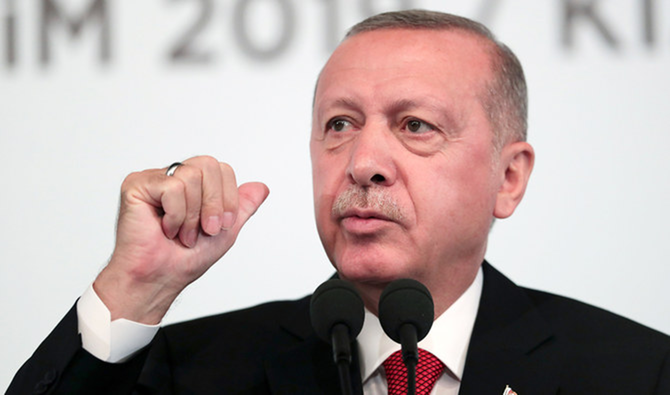
- ARAB NEWS
- 24 Apr 2024

Arab News
ANKARA: Turkey’s ruling Justice and Development Party (AKP) is looking at ways to change electoral laws in order to block challenges to power from two new breakaway political parties.
President Recep Tayyip Erdogan’s AKP and its nationalist coalition partner the MHP are working on a plan to stop parliamentary deputies from transferring to other parties — a move that has fueled rumors of an imminent snap election in the country.
Under Turkish election rules, political parties must settle their organization procedures in at least half of the nation’s cities and hold their first convention six months ahead of an election date.
Any political party with 20 lawmakers in Turkey’s parliament is entitled to take part in elections and be eligible for financial aid from the treasury for the electoral process.
The leader of the main opposition Republican People’s Party (CHP), Kemal Kilicdaroglu, has hinted at the possibility of transferring some CHP lawmakers to the newly founded parties to secure their participation in elections.
Turkey’s ex-premier, Ahmet Davutoglu, and the country’s former economy czar, Ali Babacan, both longtime allies of Erdogan, recently left the AKP to establish their own opposition groups, and have come under pressure from the AKP and MHP to leave their parties out of the race.
Babacan has been critical of Erdogan’s move away from a parliamentary system of governance in Turkey to one providing the president with wide-ranging powers without any strong checks and balances.
“The AKP is abolishing what it built with its own hands. The reputation and the economy of the country is in ruins. The number of competent people has declined in the ruling party. Decisions are being taken without consultations and inside a family,” Babacan said in a recent interview.
He also claimed that AKP officials were competing against each other for personal financial gain.
Babacan, a founding member of the AKP, was highly respected among foreign investors during his time running the economy. He resigned from the party last year over “deep differences” to set up his DEVA grouping on March 9 with a diverse team of former AKP officials and liberal figures.
Berk Esen, a political analyst from Ankara’s Bilkent University, believes Babacan’s recent statements have angered Erdogan.
“As a technocrat, Babacan gains respect from secular circles as well as the international community, which Erdogan clearly lacks. Despite being in office for 13 years, Babacan has not been tainted by corruption allegations and is known as the chief architect of Turkey’s rapid economic growth during the AKP’s first two terms,” he told Arab News.
“The legislation that the AKP-MHP coalition is working on may prevent deputy transfer only in case early elections are scheduled for the fall. Otherwise, the newly established parties will most likely build their organizations across the country and become viable for elections by summer, if not the spring of 2021.”
If Davutoglu and Babacan were successful in capturing disillusioned voters, they could prevent the ruling coalition getting the 51 percent of votes needed to secure a parliamentary majority.